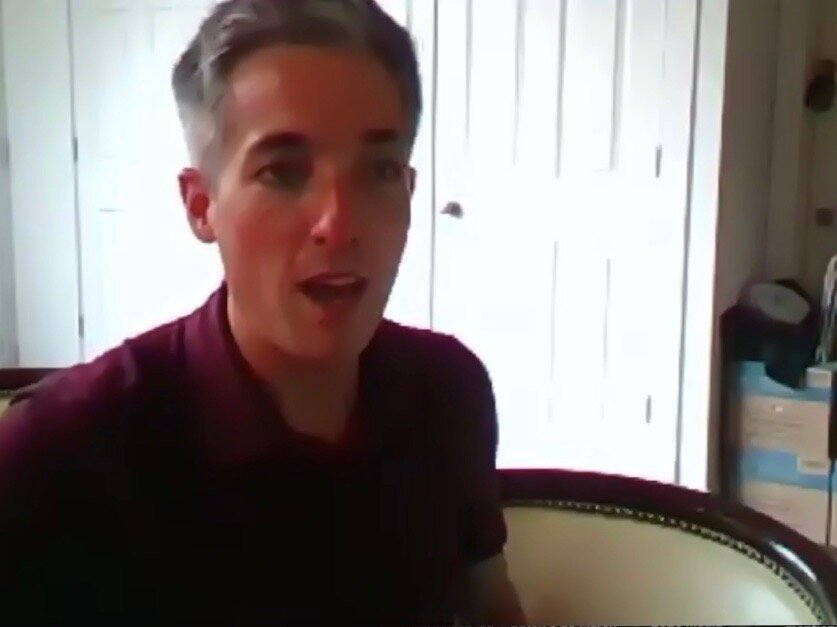Democratize ComEd calls for public control of utility
Bribery scandal means reform ‘makes more sense than ever’
Chicago Ald. Daniel La Spata is calling for the city to take democratic control of the ComEd utility. (Facebook)
By Ted Cox
A Chicago alderman is calling for “democratization” of the ComEd utility in the wake of a $1.3 million bribery scandal.
Ald. Daniel La Spata joined the group Democratize ComEd in an online news conference Monday morning ahead of a scheduled meeting Thursday by the Chicago City Council’s Committee on Environmental Protection & Energy. La Spata called reform of the electric utility and its board of directors key to producing renewable energy and adopting a progressive rate structure.
“At the end of the day, ComEd is accountable to ComEd,” La Spata said. “We deserve a utility that is accountable first and foremost to the people of Chicago.”
La Spata dismissed media reports that this was about a “city takeover” of the utility, and instead insisted, “We are talking about a democratically controlled utility,” through a public majority on its board.
“It’s a good and feasible idea for the city of Chicago,” he said, adding that the city has already executed a “feasibility study” on potentially altering the franchise agreement as it’s scheduled to come up at the committee meeting. Saying, “Chicagoans deserve to see this feasibility study now,” he called for Mayor Lori Lightfoot to release it before the meeting.
Democratize ComEd distinguishes between “municipalization” and “democratization,” saying the former is about city control, and the latter “takes municipalization a step further” and “places those assets under the control of a dedicated local elected entity.” It cited the Chicago Transit Authority and the Metropolitan Water Reclamation District as formerly private businesses that were “municipalized” in the ‘50s.
Liz Kantor, one of the leaders of the Democratize ComEd campaign, pointed to a federal agreement issued earlier this month in which the utility admitted to have “facilitated” $1.3 million in bribes for favorable legislation in the General Assembly. House Speaker Michael Madigan was mentioned in that agreement, but has not been charged and has denied any wrongdoing.
“We must abandon this model of greed and embrace a publicly owned future,” Kantor said. She called the $200 million fine ComEd agreed to pay “a drop in the bucket,” adding that it basically amounted to its annual profits in Chicago.
Calling it a “sweetheart deal,” Kantor said, “This is money ComEd has cost us.” She added that the fine will be paid to the federal government, but that if it went to the city it could pay to convert 200 buses to electricity or put 2,000 nurses in public schools.
“We can no longer trust ComEd to be a partner of the city,” said Matthew Cason, another of the campaign leaders. He added that, in the immediate wake of the bribery scandal, municipalization “now makes more sense than ever.”
Cason suggested that, with the 30-year franchise agreement with the city up for renewal, and a year’s notice required for the city to acquire a utility’s facilities, the city should extend the agreement a year as a transition period to municipalization. He called on the committee and the entire Chicago City Council to act, saying, “We expect them to hold ComEd’s feet to the fire.”
WBEZ-FM in Chicago reported last week that the favorable legislation in the General Assembly allowed the utility to raise rates and increase revenue, with the result that “about 4 million homes and businesses are feeling the financial pain from the sharp increase in rates because ComEd enjoys a near-monopoly in Chicago and far beyond, delivering power to roughly 70 percent of the people of Illinois.”
According to ‘BEZ, the original sentencing guidelines for the utility’s bribery scheme called for fines of between $240 million and $480 million, but the utility copped to a settlement lower than the minimum fine, with the U.S. Attorney’s Office in the area giving ComEd credit for complying with its investigation.
State Rep. Ann Williams of Chicago, chairwoman of the House Energy & Environment Committee, issued a statement to colleagues last week saying that she was working to amend the Clean Energy Jobs Act she’s sponsored “to end automatic rate hikes and implement strong utility-accountability measures.” She earlier declined to hold hearings on the bribery scandal, saying it was best left to the U.S. attorney and other law offices to investigate.
The ‘BEZ story reported that the earlier Future Energy Jobs Act, passed by the General Assembly and signed into law by then-Gov. Rauner, only served as a “bailout,” especially for the Illinois nuclear plants owned by ComEd’s parent company, Exelon. Williams’s Clean Energy Jobs Act is a more ambitious bill that would hold companies accountable for leaving behind mining operations and fossil-fuel plants while also providing incentives and setting a timeline for the shift to renewable energy.

